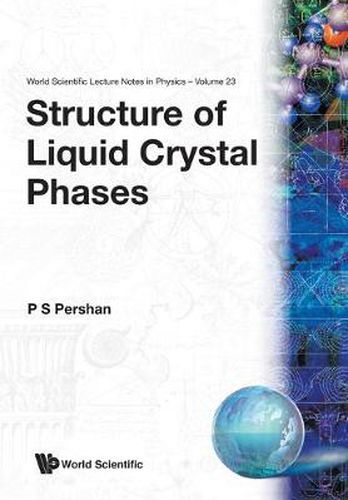Readings Newsletter
Become a Readings Member to make your shopping experience even easier.
Sign in or sign up for free!
You’re not far away from qualifying for FREE standard shipping within Australia
You’ve qualified for FREE standard shipping within Australia
The cart is loading…






This title is printed to order. This book may have been self-published. If so, we cannot guarantee the quality of the content. In the main most books will have gone through the editing process however some may not. We therefore suggest that you be aware of this before ordering this book. If in doubt check either the author or publisher’s details as we are unable to accept any returns unless they are faulty. Please contact us if you have any questions.
Current understanding of different phases as well as the phase transitions between them has only been achieved following recent theoretical advances on the effects of dimensionality in statistical physics. P S Pershan explains the connection between these two separate areas and gives some examples of problems where the understanding is still not complete. The most important example is the second order phase transition between the nematic and smectic-A phase. Others include the relation between the several hexatic phases that have been observed and the first order restacking transitions between phases that were all previously identified as smectic-B, but which should more properly be identified as crystalline-B. Some relatively recent experimental developments on the discotic phase, liquid crystal surfaces and lyotropic phases are also included. The book includes 41 major reprints of some of the recent seminal work on the structure of liquid crystals. They are introduced by a brief review of the symmetries and other properties of liquid crystalline phases. In addition, there is a discussion of the differences between true liquid crystalline phases and others that were described as liquid crystalline in the early literature, but which have since been shown to be true three-dimensional crystals. The progression from the isotropic fluid, through the nematic, smectic, and various crystalline phases can be understood in terms of a systematic decrease in symmetry, together with an accompanying variation in structure is explained. A guide to the selected reprints and a sort of Rosetta Stone for these various phases is provided. The goal of this book is to explain the systematics of this progression to students and others that are new to this field, as well as to provide a useful handbook for people already working in the field.
$9.00 standard shipping within Australia
FREE standard shipping within Australia for orders over $100.00
Express & International shipping calculated at checkout
This title is printed to order. This book may have been self-published. If so, we cannot guarantee the quality of the content. In the main most books will have gone through the editing process however some may not. We therefore suggest that you be aware of this before ordering this book. If in doubt check either the author or publisher’s details as we are unable to accept any returns unless they are faulty. Please contact us if you have any questions.
Current understanding of different phases as well as the phase transitions between them has only been achieved following recent theoretical advances on the effects of dimensionality in statistical physics. P S Pershan explains the connection between these two separate areas and gives some examples of problems where the understanding is still not complete. The most important example is the second order phase transition between the nematic and smectic-A phase. Others include the relation between the several hexatic phases that have been observed and the first order restacking transitions between phases that were all previously identified as smectic-B, but which should more properly be identified as crystalline-B. Some relatively recent experimental developments on the discotic phase, liquid crystal surfaces and lyotropic phases are also included. The book includes 41 major reprints of some of the recent seminal work on the structure of liquid crystals. They are introduced by a brief review of the symmetries and other properties of liquid crystalline phases. In addition, there is a discussion of the differences between true liquid crystalline phases and others that were described as liquid crystalline in the early literature, but which have since been shown to be true three-dimensional crystals. The progression from the isotropic fluid, through the nematic, smectic, and various crystalline phases can be understood in terms of a systematic decrease in symmetry, together with an accompanying variation in structure is explained. A guide to the selected reprints and a sort of Rosetta Stone for these various phases is provided. The goal of this book is to explain the systematics of this progression to students and others that are new to this field, as well as to provide a useful handbook for people already working in the field.